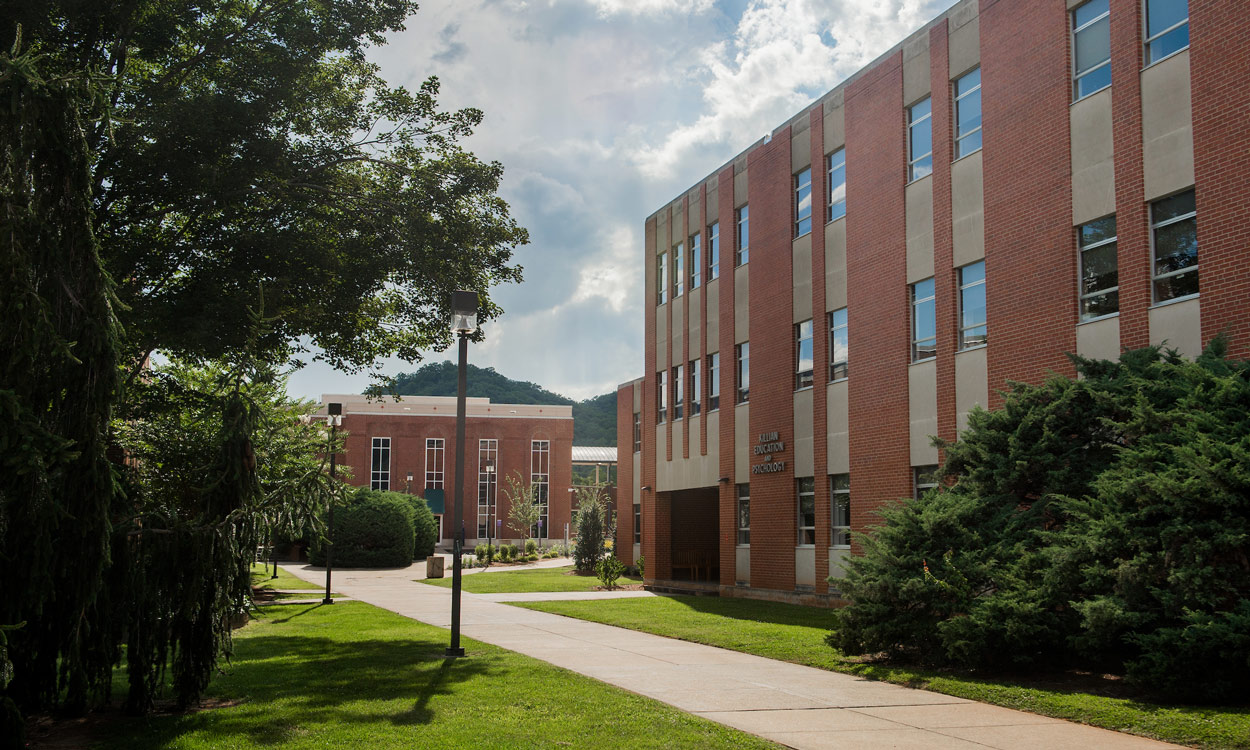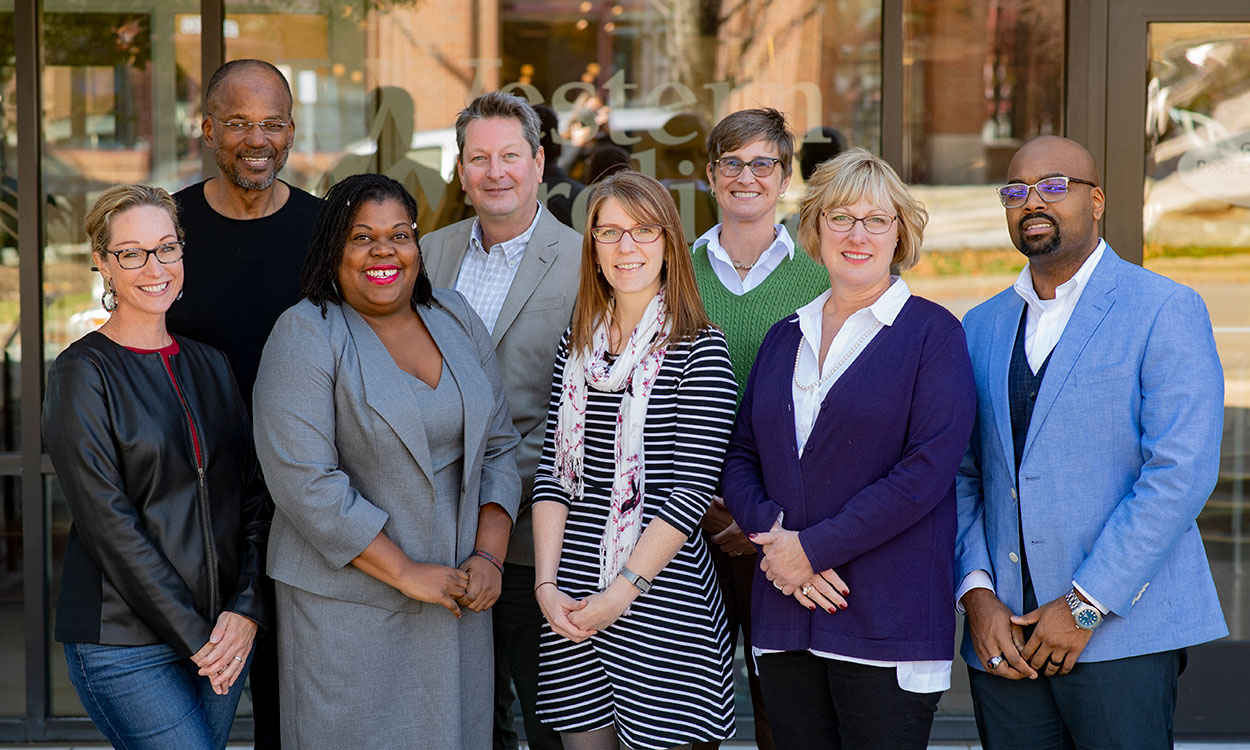WCU program among nation’s best in preparing future teachers to teach the “science of reading”

By Julia Duvall
The undergraduate teacher preparation program at Western Carolina University has been recognized by the National Council on Teacher Quality as among the best in the nation in preparing future elementary teachers to teach children to read, earning an A+ distinction in NCTQ’s new report, Teacher Prep Review: Strengthening Elementary Reading Instruction.
The program is among just 48 nationwide and five in North Carolina highlighted by NCTQ for going above and beyond the standards set by literacy experts for coverage of the most effective methods of reading instruction—often called the “science of reading.”
National data shows that more than one-third of fourth grade students — more than 1.3 million children — cannot read at a basic level. Preparing teachers in the methods that research has shown to work best will hopefully change those results.
To evaluate the quality of preparation being provided, a team of experts at NCTQ analyzed syllabi, including lecture schedules and topics, background reading materials, class assessments, assignments and opportunities to practice instruction in required literacy courses for undergraduate elementary teacher candidates at WCU. To earn an A+ distinction, programs needed to comfortably exceed NCTQ’s targets for coverage of the five core components of scientifically based reading instruction — phonemic awareness, phonics, fluency, vocabulary and comprehension — and not teach any instructional practices that are unsupported by research, such as the debunked three-cueing method, which can inhibit students’ progress in reading.
While some portion of children will learn to read naturally, more than five decades of research have established the components of explicit, scientifically based reading instruction that help most students become successful readers. Research suggests that more than 90% of children could learn to read if their teachers used instructional methods grounded in the science of reading.
“It is essential that educator preparation programs to continue preparing elementary education graduates with skills and knowledge in the science of reading,” said Kim Winter, dean of WCU’s College of Education and Allied Professions. “Our responsibility includes incorporation of the science of reading into our curriculum and implementation of quality clinical experiences so that candidates may engage in practice along the way. The College of Education and Allied Professions is committed to continuous improvement and our faculty are devoted to engagement in research and practice that helps us understand the existing evidence on reading and writing instruction and helps to define the SoR in clear and consistent ways. The end goal is excellent teachers who impact the academic performance of students in positive ways.”
The elementary education program requires admission to teacher education in the College of Education and Allied Professions. WCU’s curriculum combines challenging academic coursework with numerous opportunities to engage in field experiences in area public schools. The capstone experience in the program includes a year-long internship experience in area public schools.
With successful completion of the program, graduates will earn a bachelor’s degree in education and will be recommended to the North Carolina Department of Public Instruction for K-6 initial licensure.
“The Western Carolina University program serves as a proof point,” said Heather Peske, NCTQ president. “Other teacher preparation leaders and faculty across the country must take note. There are programs that are doing this right, ensuring that their elementary teacher candidates get the preparation in how to teach reading that they both want and deserve.”
The new NCTQ analysis of teacher preparation programs’ coverage of the science of reading was developed over the course of two years, involving teams of literacy experts, researchers, teacher preparation leaders, and educators. NCTQ evaluated 693 traditional undergraduate and graduate programs across the country, including 24 in North Carolina. Overall, just 23% of programs earned an A or A+ grade (112 programs earned an A and 48 earned an A+).
“I am honored that Western Carolina University has been recognized as one of the best in the nation in preparing future elementary teachers to teach children to read,” said WCU Chancellor Kelli R. Brown. “As a university that was originally founded to train future teachers to spread education throughout the western part of the state this recognition feels like a full circle moment back to our roots. I couldn’t be prouder of the faculty and staff in the School of Teaching and Learning who are essential to making this program the success it is.”
See the NCTQ report for more information about WCU’s coverage of the science of reading and to see how the university compares to other programs in North Carolina or across the country.
“The NCTQ report confirms what we have long known: WCU’s faculty and programs in reading and literacy do an outstanding job in preparing preservice teachers to teach and mentor students in North Carolina’s public schools in these essential life skills,” said WCU Provost Richard Starnes. Our faculty’s hard work, dedication and professionalism are at the core of this outstanding review and it is gratifying to see that recognized.”
About WCU: As the westernmost institution in the University of North Carolina System, WCU attracts students from around the globe for its nationally ranked programs, affordability through NC Promise and exceptional student support. Recognized as a top adventure college and surrounded by the Blue Ridge and Great Smoky Mountains, students can explore the region's vast natural diversity through unrivaled experiential learning and recreational activities. Offering residential, hybrid and online programs for undergraduate and graduate degrees at our main campus in Cullowhee, WCU in Asheville located at Biltmore Park, and wherever students are through distance learning.
About NCTQ The National Council on Teacher Quality: NCTQ is a nonpartisan research and policy organization on a mission to ensure every child has access to an effective teacher and every teacher has the opportunity to be effective. We believe a strong, diverse teacher workforce is critical for providing all students with equitable educational opportunities. For more information about NCTQ, visit www.nctq.org.

